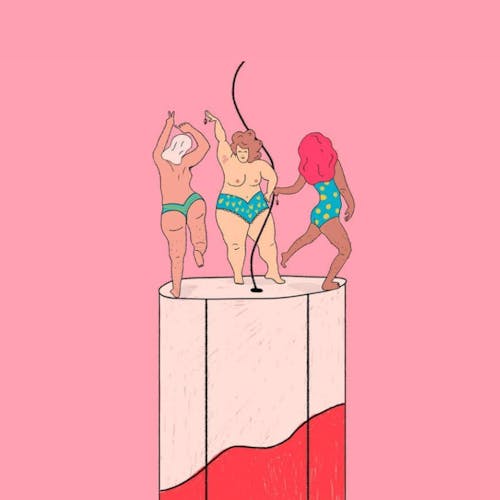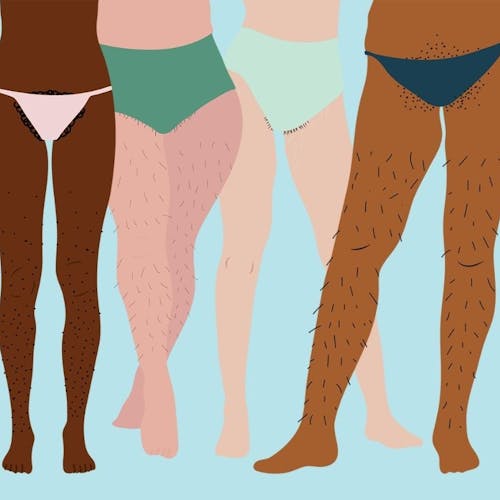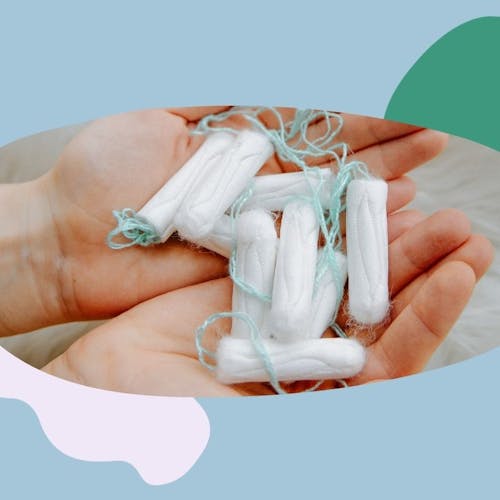This website uses cookies to enhance the user experience. By using Yoppie you are agreeing to our use of cookies.
Meet Lydia Reeves, Creator Of The Vulva Diversity Project
Written by Yoppie
30 Nov 2020
Hey Lydia! Tell us about your background, and how you came to start the Vulva Diversity Project?
Labiaplasty is now the fastest growing cosmetic procedure in the world. Why do you think this is?
Are people nervous to get their vulva cast?
Alongside the casting, you ask subjects to write about their relationship with their vulva. What are the most common insecurities you’ve read?
We love that you are able to showcase vulvas in such a creative and beautiful way. What were you hoping to achieve with the project, and what do you hope people can take from it?
This is such an important thing for young girls to see. Do you think young boys can benefit too?
How can we as a society solve the issue of vulva insecurities?
What advice would you have for a young person with insecurities about their vulva?
Absolutely! Where can people find you and stay updated about the project and your book?
Isn’t it about time we start celebrating vulvas instead of treating them like a taboo subject? That’s what artist Lydia Reeves is doing, and we are loving it.
Lydia is a body casting artist based in Brighton, UK, and the creator of The Vulva Diversity Project; a 200-strong collection of vulva casts and 100 stories from their owners, all sharing their insecurities and journeys with this intimate and rarely-discussed part of the body. At Yoppie, we love to talk about all things vagina, so this was right up our street. Our editor Caitlin caught up with Lydia to find out more about the project, the most common insecurities, and how we can all feel better about our vulvas.
“Labiaplasty is now the fastest growing cosmetic surgery around the world.” (International Society of Aesthetic Plastic Surgery)
Hey Lydia! Tell us about your background, and how you came to start the Vulva Diversity Project?
I’ve always had an arty background. I studied Fine Art at uni, and have continued with art since I graduated over 6 years ago. My art has always involved bodies, periods, and basically anything I feel people should speak about more.
I started The Vulva Diversity Project because, growing up, I was severely insecure about my body, and my vulva was the one place I was most insecure about. It affected my teenage years and even my adult years in terms of who I slept with and who I let in. This project stemmed from those feelings, as I wanted to do something that would help people celebrate their vulvas, and not go through what I went through. I want to show the huge variety, because as a straight woman growing up, I just didn’t see other vulvas, apart from in porn - and I think a lot of people are in the same boat.
“In 2016, 45 per cent more labiaplasty procedures were carried out than in 2015, according to data gathered by the International Society of Aesthetic Plastic Surgery (ISAPS)... Concerns [have been] raised over young girls choosing to have surgery on their genitals because of body insecurities that stem from social media and pornography. Leading adolescent gynaecologist Dr Naomi Crouch [says] girls as young as nine were seeking the cosmetic procedure because they were distressed by the appearance of their vulva.” (Independent.co.uk)
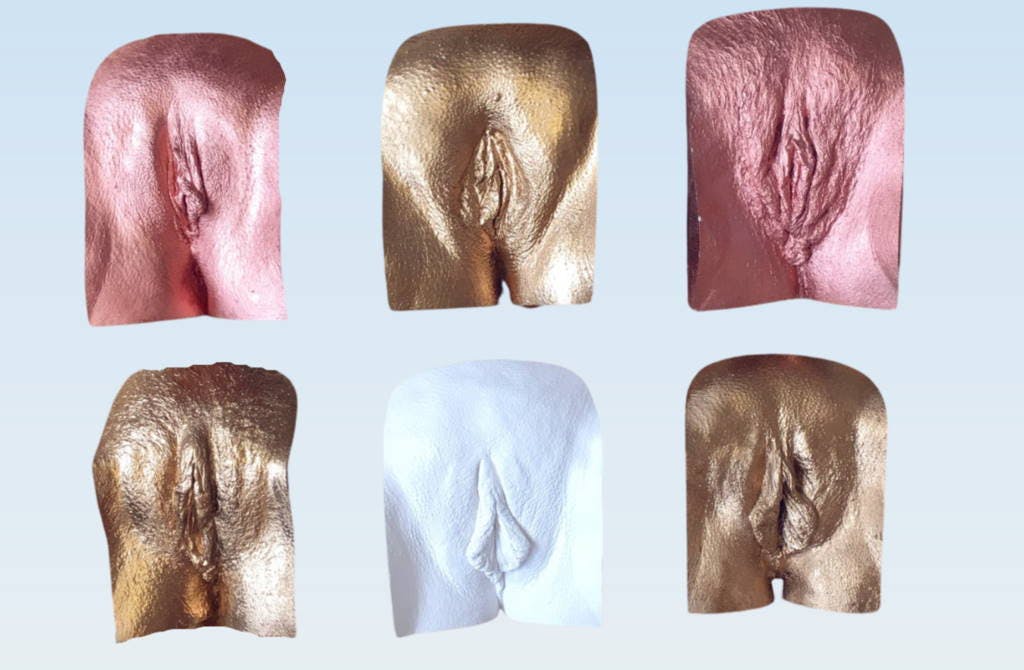
Labiaplasty is now the fastest growing cosmetic procedure in the world. Why do you think this is?
Even if we leave porn out of it for a minute, if you grow up without seeing another vulva, you could think “oh, they must all look like mine”. A lot of people who came in to get cast have said this. We know every face is different, so why do we think all vulvas look the same?
Other common thoughts are “Is mine normal? Do other people look like this? What is it meant to look like?” When I first Googled this I saw before and after pictures of labiaplasty, and that’s not going to put anyone’s mind at ease if they look like the ‘before’ image.
I think in recent years there may be a more diverse range of vulvas in porn, but certainly when I was young, all you saw was the classic ‘pornstar’ vulva; very tiny labia, tiny clitoris, all pink, no hair, pink bum hole! People might seek out labiaplasty because they feel like they need to be ‘fixed’ or made ‘more desirable’. Children are researching labiaplasty as early as nine years old… you’ve barely started puberty at nine.
Even if you don’t see, for example, boobs in the flesh, you know all boobs are different to some degree because you can tell, even under a jumper; big boobs, small boobs, saggy boobs, and so on. You can roughly see the shape even when they’re covered up, and the same can be said about other parts of the body, but your vulva is this place of mystery!
“According to NHS figures, in 2015-16, more than 200 girls under 18 had labiaplasty and more than 150 of the girls were under 15.” (BBC.co.uk)
Are people nervous to get their vulva cast?
It depends on the individual; some are completely comfortable getting their vulva out, they just don’t care, but that same person may be shy about getting their boobs out, and vice versa. I always chat to them for a while about why they decided to come for a cast, their background, any insecurities they have, and I share my story too if I feel it’s appropriate, so they understand why I’m doing this. Before anyone has taken any clothes off I always make sure we get to know each other better, so it’s not as nerve-racking. I don’t want anyone to feel like they just walk in, meet me and take their pants off - it’s a much more friendly process!
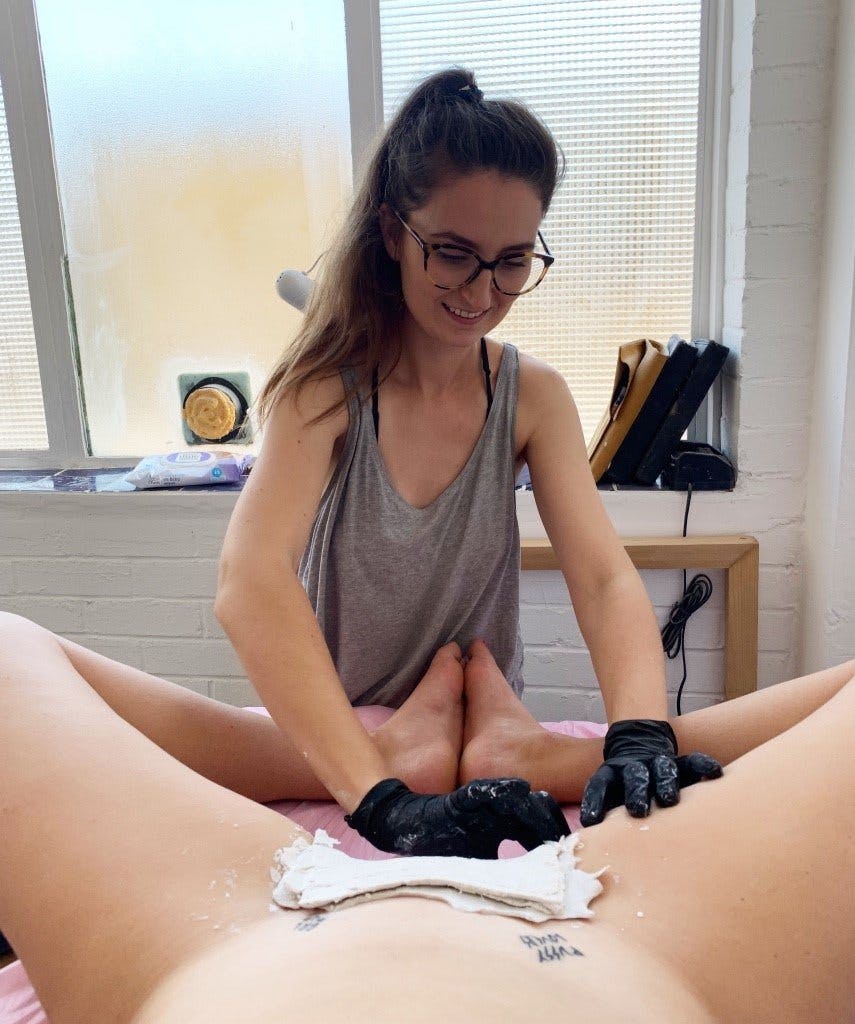
Alongside the casting, you ask subjects to write about their relationship with their vulva. What are the most common insecurities you’ve read?
When I started the project, I naively thought everyone would have the same insecurities as me. Just as people thought all vulvas are the same, I somehow thought all the insecurities would be too. I was surprised that everyone had a completely different story.
It’s hard to pinpoint the most common, because the stories are all so different. To give you an idea, I’ve had a lot of stories about overcoming sexual abuse, insecurities about the size of labia, stories about parents taking them to the doctor because they think their vulva looks weird, which shows a lack of education on the part of parents. I’ve had a few non-binary people come in, and a transgender woman who was born with a penis, and has had surgery to have a vulva in her later years. I’ve also had a man come in who was born with a vulva, and still has one.
All the stories have been super interesting, and I’ve got a book in progress with an index of over 50 topics that have been spoken about, with page numbers so people can read about specific stories.
“A labiaplasty is surgery to reduce the size of the labia minora – the flaps of skin either side of the vaginal opening. Some women want a labiaplasty because they do not like the look of their labia. But it's completely normal to have noticeable skin folds around the opening of your vagina.” (NHS.uk)
We love that you are able to showcase vulvas in such a creative and beautiful way. What were you hoping to achieve with the project, and what do you hope people can take from it?
I want to show the aesthetic side, and that vulvas are so different, but also share the stories behind them. There could be two vulvas that look similar, but those two people may have gone through something entirely different. I think it’s just as important to share the stories so people can read them and maybe discover something they have in common.
My exhibition has been postponed to next summer due to COVID-19, but I’m also in the process of making a book with photographs of all 200 casts, and 100 of the stories collected. Since exhibitions are location-dependent, the book will allow these stories to be shared worldwide - hopefully it will spark many interesting conversations.
I'm hoping this will help people feel less alone in how they feel about their vulva, or what they have been through. I’m hoping it starts conversations between friends and families, but if people don’t want to talk about it, they can still read the stories and take something valuable from it. Even if they don’t relate to any of it, it’s about realising that everyone looks different, has been through something different, and feels different - and it’s all completely normal and OK.
This is such an important thing for young girls to see. Do you think young boys can benefit too?
Absolutely. This isn’t just for people who have vulvas, I think this can be so educational for everyone. Every sex, every age, whatever anyone might have been through, it’s for everyone.
There is a huge lack of education about the variety of vulvas and experiences. A handful of people who came in to get cast said their insecurity stemmed from a man or boy making a nasty comment about their vulva. Some people just don’t know that every vulva is different, and it would be super helpful if everyone was educated on this.
How can we as a society solve the issue of vulva insecurities?
Another project I’m working on with a friend of mine is trying to get this education and my vulva casts into schools. It’s all fine being educated as an adult, but by then you might have years of negative thoughts to unpick. If you learn that all vulvas are different when you’re young, you might not develop the negative thoughts in the first place. Even if it’s just one lesson in your whole time at school, I think that would be a huge improvement.
I think it’s about talking - talk to your friends, talk to your kids, educate as much as possible. I’d love to bring this into schools and show my casts. I think a lot of kids think it’s embarrassing to talk about, but when something is spoken about by a teacher, it becomes less of a big deal. I know I wouldn’t have wanted to talk about it as a kid because I was shy, but I would have sat in the lesson and thought “Oh, it’s OK, I’m normal!” - sometimes that’s all it takes.
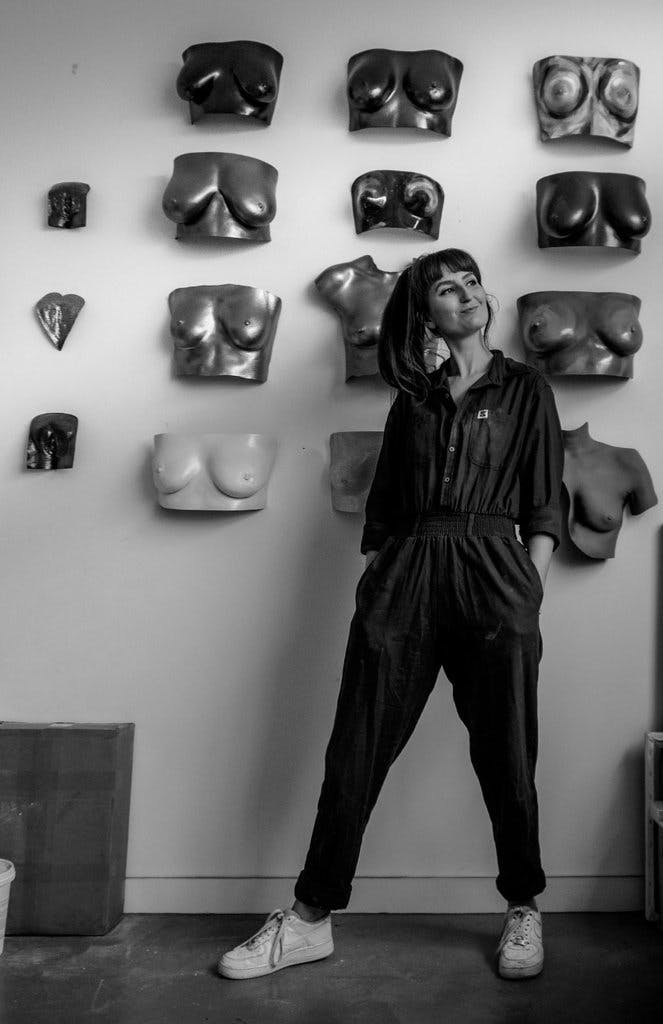
What advice would you have for a young person with insecurities about their vulva?
Luckily, nowadays one of the pros of social media is that more people are talking about the issue and there are lots of great accounts now to do with vulva positivity, varieties of vulvas, and so on. I would say get to know yourself, and look at your own. I think a lot of people avoid ever looking down there and hide it away, and I don’t think that helps. Even if you initially don’t like what you see, get to know yourself, how you look and how you work - all of that will be so helpful for the future.
If you can, just talk to people. Ask your friends. I know that’s quite a big thing for some people, and they might not feel comfortable with it, but if you have a close friend that you can discuss insecurities with, that can sometimes be a life-changing conversation. Even if your friend doesn’t have insecurities of their own, you can still have a conversation, and perhaps feel like a weight has been lifted when you speak about it out loud.
And also… buy my upcoming book when it’s out! I’m hoping it will help and encourage body positivity.
Absolutely! Where can people find you and stay updated about the project and your book?
I’m on Instagram at @lydiareeves_artist, and there’s more information on my website. There’s a whole section on The Vulva Diversity Project. Also, the project I’m running with my friend, where we’re trying to get this into schools, is called The What Is Normal Project. You can find it on Instagram @whatisnormalproject.
If you're curious about genital confidence or what vulvas can look like, ask away over on Instagram at @itsyoppie! Don't forget that Yoppie's personalised period subscription box can get organic cotton tampons, PMS supplements, and much more, delivered through your letterbox. That's a few less things to worry about each cycle.
Section jump
Back to top
Subscribe To Our Newsletter
YOPPIE





© 2026 Yoppie is a registered trademark of Phlo Technologies Ltd.
Yoppie's supplements are not a substitute for a varied diet and healthy lifestyle and are not intended to diagnose, treat, or cure any disease. If you are pregnant, breastfeeding, have a medical condition or are under medical supervision, please consult with your doctor before taking any of our products.




